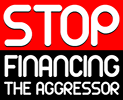Is an EU embargo on Russian oil imminent? Oleg Ustenko, the chief economic advisor to the President of Ukraine, has been calling for it since the outbreak of war. But for a long time, an oil embargo seemed out of the question. The resistance in Germany and other EU countries seemed insurmountable. Last week, however, Germany moved away from its blockade stance. In a remarkable about-face, the German government announced that it would support an EU embargo on Russian oil. This has brought momentum into the EU debate, even if some countries, notably Hungary, still want to keep their Russian oil supplies. The next few days will show whether the EU member states can agree on a common course of action. Yesterday, the heads of state and government of the G7 decided at a video conference to jointly phase out Russian oil. This sets the direction.
The fact that a rethink is beginning to materialize is welcome. So far, however, concrete embargo proposals in the EU have stalled halfway. Emphasis is constantly being placed on a « complete embargo ». However, it is not supposed to take effect immediately, but only in six months for crude oil and in eight months for refined products (with additional transition periods for Hungary, the Czech Republic, Slovakia and Bulgaria). The hope is that the transition – which is gradual or hesitant, depending on how you read it – will be easier for the economy to absorb. That may be true. The downside, however, is that oil billions from Europe will continue to flow into Russia’s war chest for months.
This will give the Russian regime the financial breathing space to drag out its war and possibly escalate it further. Moreover, Europe is giving Russia sufficient time to secure alternative sales channels, for example in India. The effect of the « complete embargo » will therefore remain limited. In its proposed form, the embargo will primarily serve to soothe our own consciences. On the other hand, it hardly limits the Russian regime’s ability to continue – or even intensify – its aggressive policy of expansion and oppression. A truly effective embargo would also have to cover Russian natural gas in addition to Russian oil. However, a gas embargo is still not being discussed in concrete terms in the EU. In Germany in particular, the fear of painful supply bottlenecks still seems too great.
The oil embargo debate shows once again that the EU is primarily preoccupied with itself. There are endless discussions about which sanctions are bearable for the EU’s own economy. Although the primary goal should be to cut off the aggressor’s sources of finance. That is what matters. It is short-sighted to let this fade into the background. Supply shortfalls and price increases for oil and gas undoubtedly have the potential to cause economic disruptions. But these are temporary problems that can be solved at least in the medium term. What is at stake, on the other hand, if we fail to contain the aggressor, is of a very different order of magnitude. « Peace is not everything, but everything is nothing without peace » (Willy Brandt).
The longer the war in Ukraine continues and threatens to spread into a wider wildfire, the more it will shatter Europe’s peace order – and the greater the economic damage it causes day after day in Ukraine, Europe and other parts of the world. Our best chance to put an end to Russian aggression is a complete and immediate oil and gas embargo. Continuing to fund aggression instead is dangerous – and could cost us dearly in the long run.
Since the start of the war, Europe has transferred around 58 billion euros to Russia for oil, gas and coal purchases. If oil imports continue for another six to eight months, and if there is still no talk of ending gas imports, these payments will add up to well over 200 billion by the end of the year. We need to halt this now. Stop financing the aggressor!
Rainer Wedde, Roman Probst, Peter Münch

